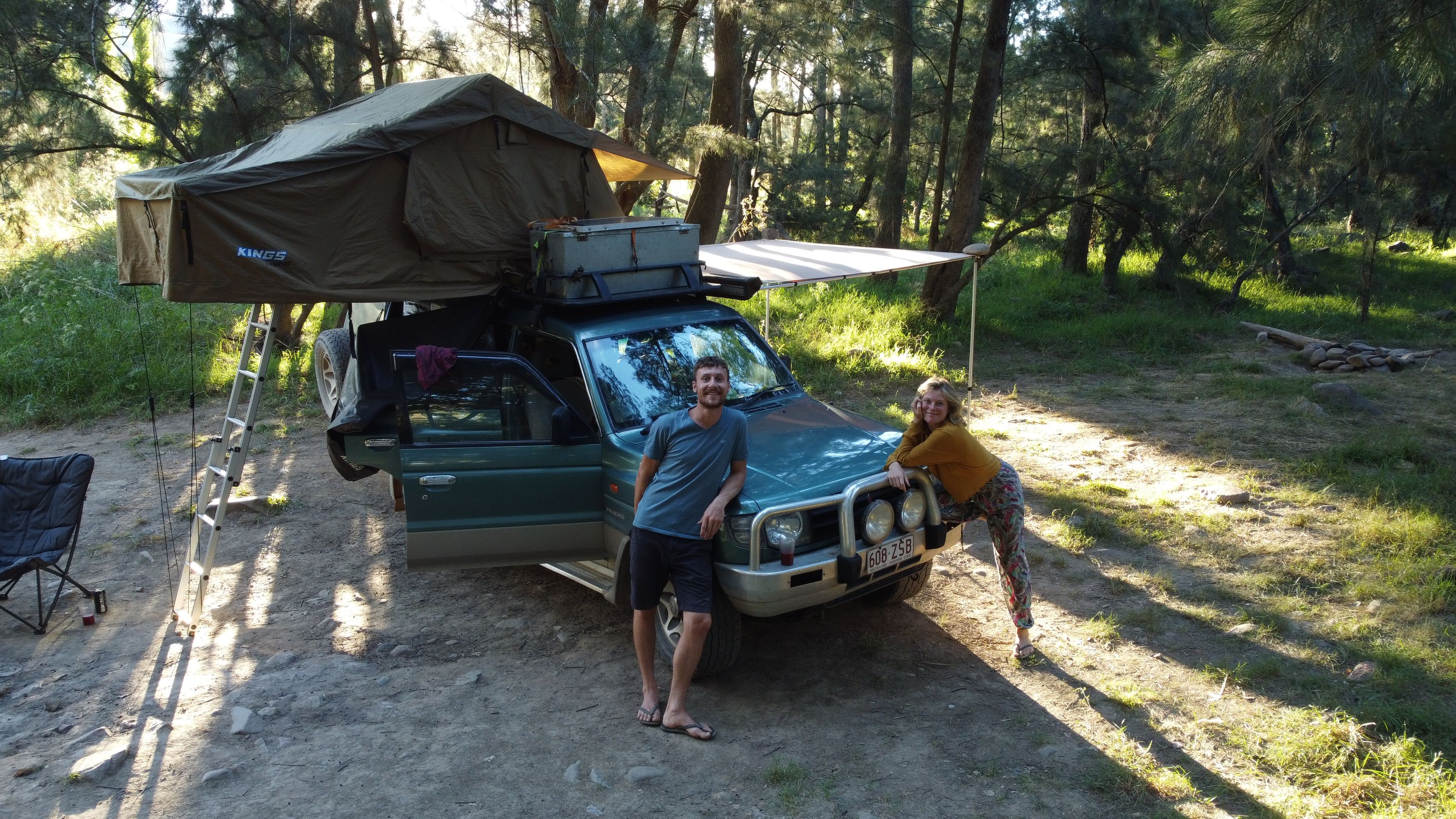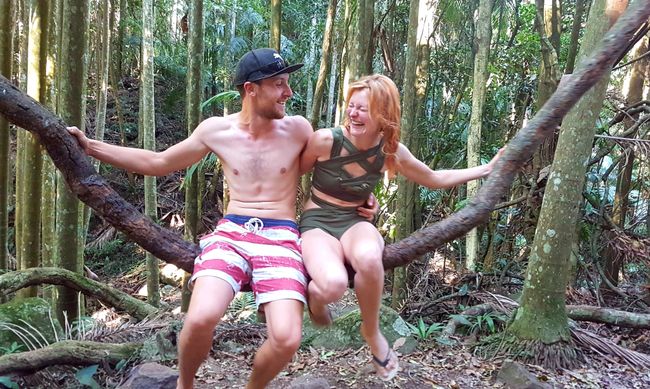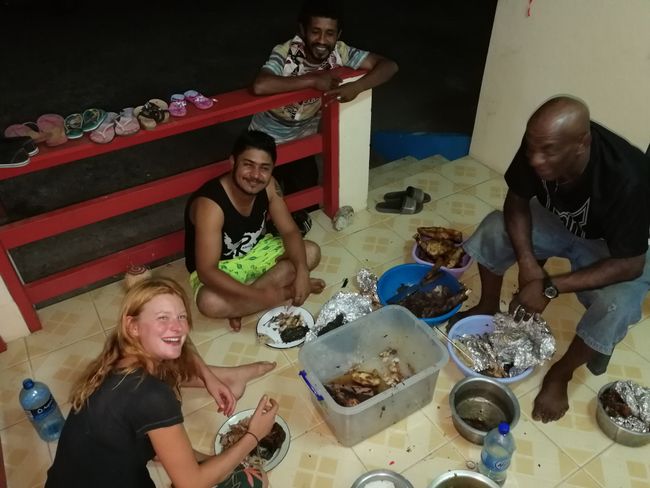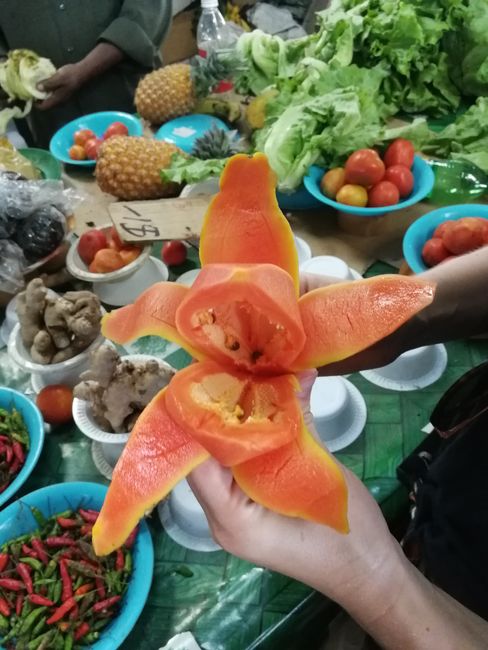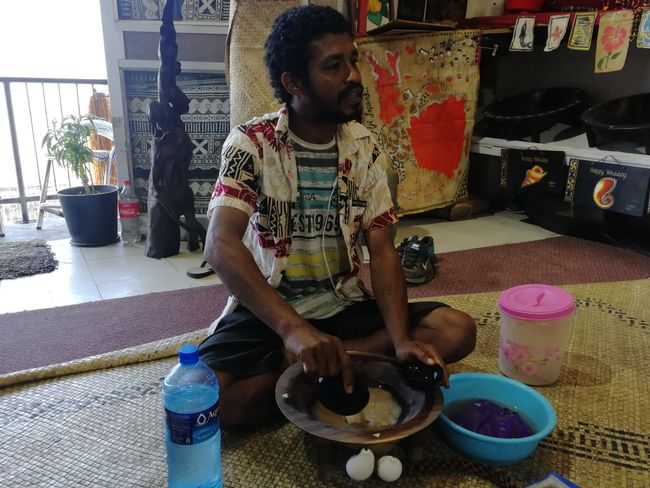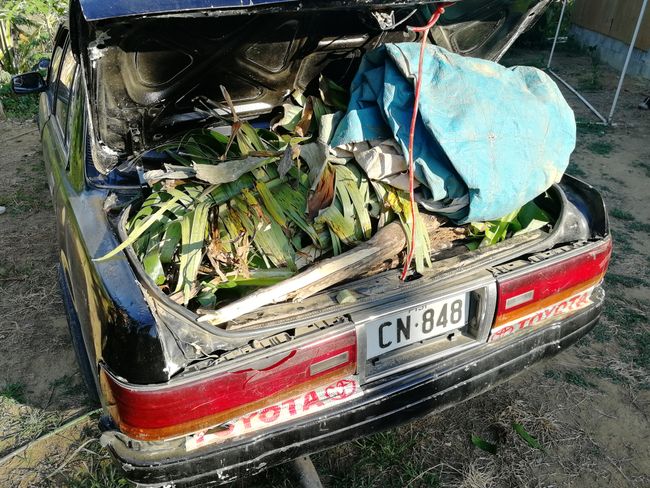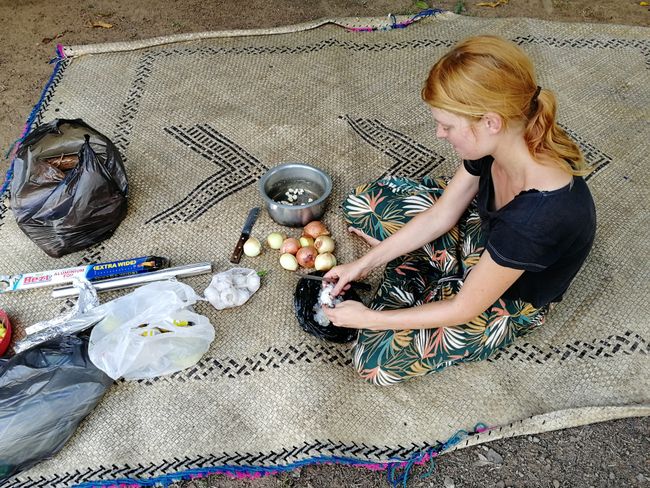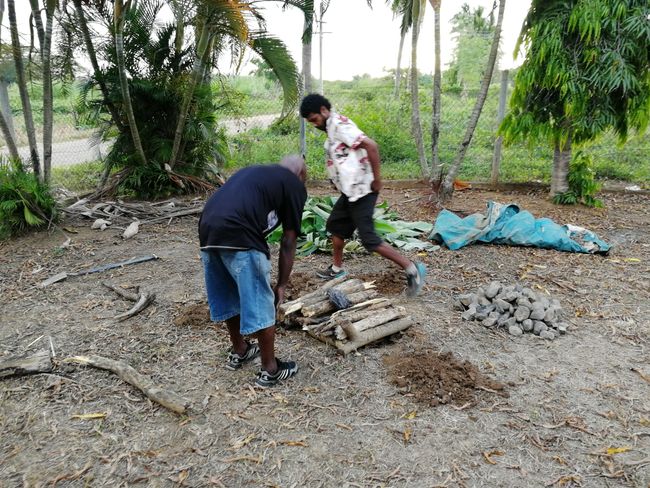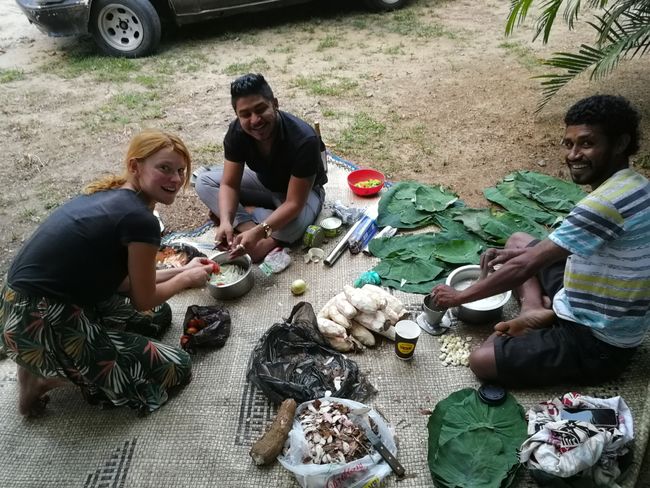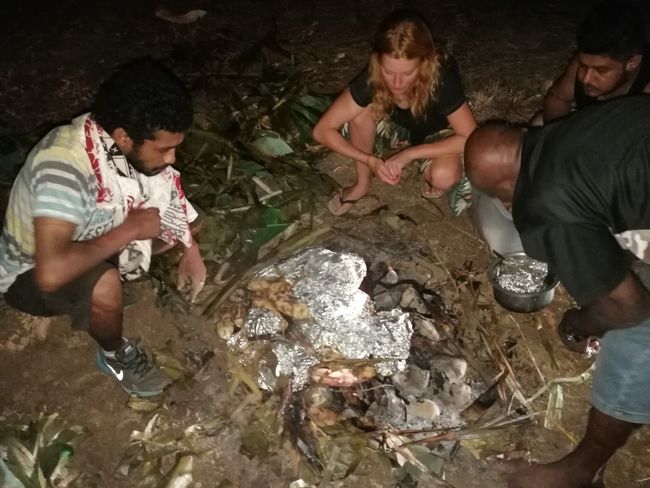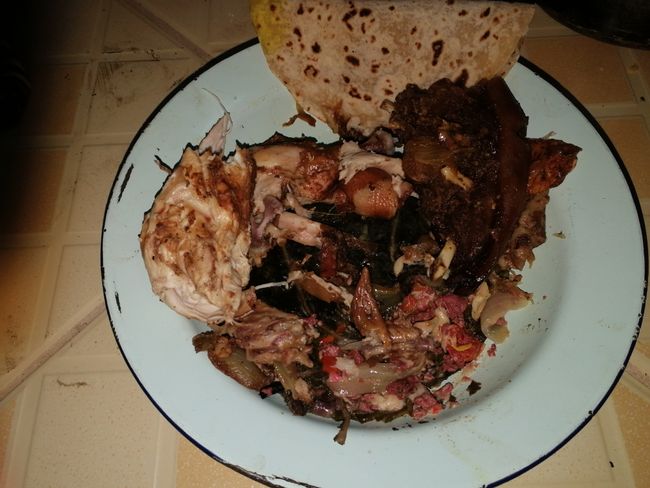Door 21 - Arrival in Fiji and the first few days
بڵاوکراوەتەوە: 21.12.2019
سەبسکرایبی هەواڵنامە بکەن
On December 1st, we left the Airbnb around 6:30 am to make it to our flight check-in on time. We quickly unpacked the things we needed from our car and made our way to the Fortitude Valley train station. Unfortunately (or luckily, as we would realize upon our return), we missed our train and had to take an Uber instead. Shortly after 8 am, we arrived at the airport and even got an upgrade to the emergency exit row with more legroom at the check-in counter - a good start. The flight was with MalindoAir, the best budget airline you could wish for. Free baggage, onboard entertainment, food, and even alcoholic beverages included. After a four-hour flight and a 3-hour time difference from Brisbane, we landed around 5:30 pm in Nadi on Viti Levu, the main island of Fiji. We walked to our Airbnb about 2.5 km away from the airport and made ourselves comfortable. The owner was a Welsh woman who had married a Fijian. She had 6 dogs, all very friendly, but sometimes quite noisy at night. In the evening, we went to Denarau, the tourist resort area, where we watched a dance and fire show. The next day, we went to the market in Nadi where we bought some fresh fruits, kava roots, and a SIM card for mobile internet. Kava is the cultural drink of Fiji, made from the powder of the roots of the plant and cold water. We needed these roots as a gift for the first stop in the Yasawa Islands, a chain of islands northeast of Viti Levu. On the way through the market, we met a Fijian named Luke who worked in a souvenir shop that sold handmade items from his village in the mountains. He invited us for a kava and after a long conversation about Fiji and its culture, we were invited to a communal dinner with an underground cooking experience. This is a traditional and popular way of cooking in Fiji. We took a walk until closing time and went to a hotel beach in Denarau, then we returned and bought what we needed with Luke. When we had everything, we packed it all into his colleague's car and set off for his son's house where we loaded stones, banana leaves, wood, and chili peppers. The car was almost completely on the ground, the wheel scraped against the wheel arch, but somehow we made it to Luke's partner's house where we wanted to cook. We unloaded the stuff and dug a hole while Clara peeled onions and garlic. When the hole was ready, we put the stones in and built a bonfire with the wood around it. While it was burning, we prepared everything else. I peeled kasawas (a type of sweet potato), Clara mashed garlic and mixed it with milk and onions, Luke prepared the chicken, and his colleague prepared the leg of a wild boar. The onion-garlic-milk mixture was then mixed with corned mutton (some canned minced meat mix of lamb and sheep) and wrapped in banana leaves. These and all the meat were then wrapped in a layer of aluminum foil, and when that was done, the fire had burned down and the stones glowed red. The stones were covered with a thin layer of banana stems and we placed everything wrapped up on top, which was then covered with banana leaves. A tarpaulin or a kind of jute blanket was placed on top and covered with soil until no more smoke came out. And then it was time to wait. Normally only about 1.5-2 hours, but this time 2.5. The wild boar was too fatty and took a bit longer. Then it was done and it was absolutely amazing. The meat was super tender and melted in the mouth like butter, and the milk mixture was the best. Indescribably delicious, the banana leaves like spinach and nicely garlicky. Full and satisfied, we made our way back to our last night on Viti Levu before heading to the islands. The next morning, we took the bus to Lautoka, from where we were taken to the island of Waia Lailai by a small fiberglass boat with an outboard motor. The transportation was cheaper than the actual boat and also faster, and it was done by the family we were going to stay with for the next two days.
سەبسکرایبی هەواڵنامە بکەن
وەڵام
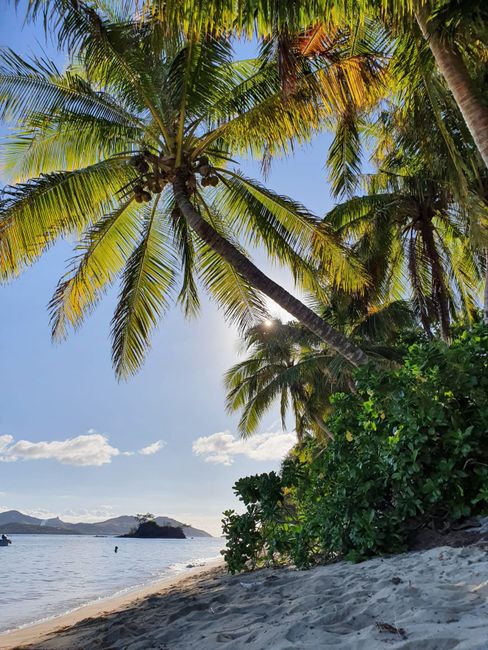
ڕاپۆرتی گەشتیاری فیجی
